Entire software testing activities in one roof!
Our company can provide extremely cost-effective end-to-end testing activities from offshore

Integration Testing
Objective: To verify the interaction and data flow between integrated software components.
Approach: Test individual modules or units in isolation and then test them together as a group to validate their integration.
Types: Top-down, bottom-up, incremental, big bang.

System Integration Testing
Objective: To validate the integration and interaction of multiple systems or subsystems.
Approach: Test end-to-end scenarios involving multiple systems to ensure seamless communication and functionality.
Focus: Integration points, data exchange, interoperability.

System Testing
Objective: To validate the entire system's behaviour and functionality.
Scope: End-to-end testing of the software application.
Focus: User interfaces, business logic, system integrations, workflows.

Regression Testing
Objective: To ensure that recent code changes haven't adversely affected existing functionality.
Scope: Re-execution of previously executed test cases.
Types: Selective, complete, partial.
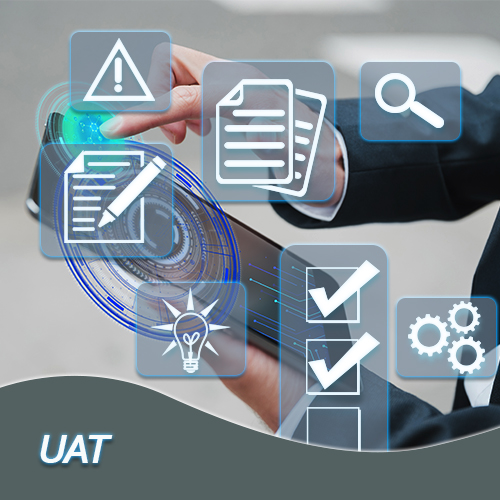
User Acceptance Testing (UAT)
Objective: To validate the software against user requirements and business needs.
Approach: End-users or stakeholders perform testing in a real-world environment.
Focus: Usability, functionality, business scenarios.

Game Testing
Objective: To ensure that the game is functional, stable, enjoyable, and ready for release.
Approach: To ensure that a video game meets quality standards.
Focus: Quality, functionality, performance, and user experience.
Other specialised testing services activities

Performance Testing
Objective: To assess the performance, scalability, and responsiveness of the software under various conditions.
Types: Load testing, stress testing, endurance testing, spike testing.
Focus: Response time, throughput, resource utilisation.

Security Testing
Objective: To identify and mitigate security vulnerabilities in the software.
Types: Vulnerability assessment, penetration testing, security scanning.
Focus: Authentication, authorisation, data encryption, secure communication.

Database Testing
Objective: To validate data integrity, consistency, and accuracy in the database.
Scope: SQL queries, stored procedures, triggers, transactions.
Focus: Data manipulation, retrieval, storage.

Accessibility Testing
Objective: To ensure that the software is accessible to users with disabilities.
Focus: Screen readers, keyboard navigation, colour contrast, font size.
Guidelines: WCAG (Web Content Accessibility Guidelines).

Usability Testing:
Objective: To evaluate the software's user interface for usability and user experience.
Approach: Conducting user-centric tests with real users.
Focus: Navigation, layout, clarity, ease of use.

Compatibility Testing:
Objective: To ensure that the software functions consistently across different platforms, devices, and browsers.
Scope: Operating systems, browsers, screen sizes, resolutions.
Focus: Cross-browser compatibility, device compatibility.

Localisation and Internationalisation Testing:
Objective: To validate software adaptability to different languages, cultures, and regional preferences.
Scope: Language support, date/time formats, currency conversions.
Focus: Cultural sensitivities, regional requirements.

Continuous Integration/Continuous Deployment (CI/CD) Testing:
Objective: To integrate testing into the CI/CD pipeline for automated testing and deployment.
Approach: Automating test execution and deployment processes.
Focus: Test automation, build verification, deployment validation.
Various levels of technical resources available for end-to-end testing

Test Architect / Technical Programme Test manager
- Define overall test strategy and architecture.
- Evaluate and select appropriate testing tools and technologies.
- Provide technical leadership in designing test frameworks.
- Define and enforce testing best practices and standards across projects.

Test Lead / Test Manager
- Define testing strategies, timelines, and resource allocation.
- Mentor and provide guidance to other team members.
- Report testing progress and metrics to project stakeholders.
- Manage test environments and test data.

Quality Assurance (QA) Engineer / Tester
- Develop and execute test cases, scripts, plans, and procedures.
- Identify, report, and track defects using bug tracking tools.
- Participate in requirement analysis and review of user stories.
- Collaborate with developers, product managers, and other stakeholders to ensure software quality.
- Automate test cases where possible to improve efficiency.

Test Automation Engineer
- Design, develop, and maintain automated test scripts and frameworks.
- Select appropriate automation tools and technologies.
- Execute automated test suites and analyse results.
- Integrate automated tests into the continuous integration/continuous deployment (CI/CD) pipeline.

Performance Testing Engineer
- Design and execute performance tests to assess system scalability, reliability, and responsiveness.
- Analyse performance test results and identify performance bottlenecks.
- Collaborate with developers to optimise application performance.
- Use performance testing tools like JMeter, LoadRunner, or Gatling.

Security Testing Engineer
- Identify vulnerabilities and security flaws in software applications.
- Perform security assessments and penetration testing.
- Recommend security measures to mitigate risks.
- Utilise security testing tools such as OWASP ZAP, Burp Suite, or Nessus.

User Acceptance Testing (UAT) Tester
- Conduct testing from an end-user perspective to validate that the system meets business requirements.
- Create UAT test cases based on business requirements.
- Coordinate with business stakeholders to ensure UAT coverage.
- Document and report UAT findings to project stakeholders.

DevOps Engineer
- Implement and maintain the CI/CD pipeline for automated build, test, and deployment.
- Configure and manage test environments and infrastructure.
- Collaborate with development and testing teams to streamline the release process.

Accessibility Testing Engineer
- Evaluate software applications for compliance with accessibility standards (e.g., WCAG).
- Identify accessibility issues and provide recommendations for improvement.
- Utilise assistive technologies and accessibility testing tools.
- Advocate for accessibility best practices within the development and testing teams.

Localisation and Internationalisation Testing Engineer
- Verify that software applications are compatible with various languages, cultures, and regions.
- Conduct linguistic and cultural validation testing.
- Ensure proper handling of international formats, currencies, and date/time formats.
- Collaborate with localisation teams to address language-specific issues.

Regression Testing Specialist
- Design and execute regression test suites to ensure that new code changes do not adversely affect existing functionality.
- Maintain and update regression test cases.
- Automate regression tests for efficient execution.
- Analyse regression test results and identify any regression defects.

Test Data Engineer
- Generate and manage test data required for testing activities.
- Ensure test data integrity, privacy, and compliance with regulations (e.g., GDPR).
- Develop and maintain test data management tools and processes.
- Collaborate with other teams to synchronise test data across environments
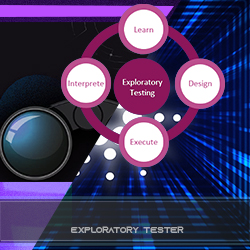
Exploratory Tester
- Perform exploratory testing to discover defects and usability issues not covered by scripted tests.
- Use domain knowledge and creativity to uncover hidden risks.
- Provide feedback on user experience and product usability.
- Collaborate with developers and testers to refine test coverage based on exploratory findings.
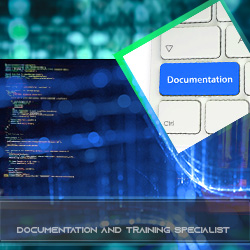
Documentation and Training Specialist
- Create and maintain test documentation including test plans, test cases, and test reports.
- Develop training materials and documentation for end-users or internal stakeholders.
- Ensure documentation complies with organisational standards and regulatory requirements.
- Provide training and support to team members on testing processes and tools.
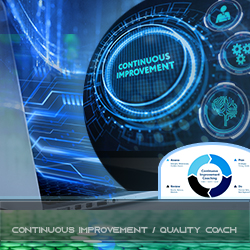
Continuous Improvement / Quality Coach
- Facilitate continuous improvement initiatives within the testing team.
- Conduct root cause analysis of defects and testing process inefficiencies.
- Identify opportunities for process optimisation and automation.
- Provide coaching and mentorship to team members on quality practices.
Our end-to-end software testing services team approach
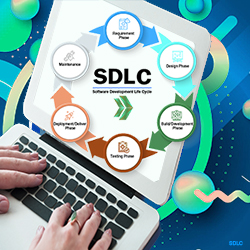
Software Development Life Cycle (SDLC)
- In-depth knowledge of the software development life cycle phases, including requirements analysis, design, development, testing, deployment, and maintenance.
- Understanding the role of testing in each phase and how it contributes to the overall quality of the software.
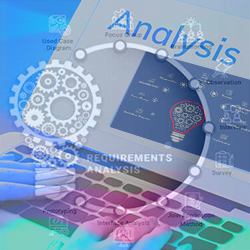
Requirements Analysis
- Review and understand the functional and non-functional requirements of the software.
- Ensure clarity and completeness of requirements to guide the testing process effectively.

Testing Methodologies and Frameworks
- Familiarity with different testing methodologies such as waterfall, agile, DevOps, and their respective testing frameworks.
- Understanding of test-driven development (TDD), behaviour-driven development (BDD), and acceptance test-driven development (ATDD) approaches.
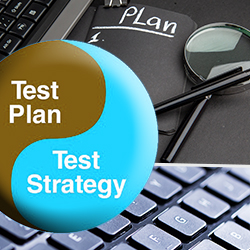
Test Planning and Strategy
- Ability to create detailed test plans outlining the testing objectives, scope, approach, resources, timelines, and deliverables.
- Proficiency in defining test strategies based on project requirements, risk analysis, and available resources.
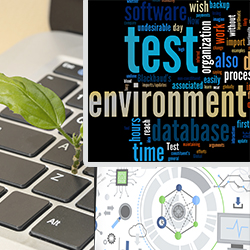
Test Environment Setup
- Provision of a dedicated test environment with necessary hardware, software, and configurations.
- Configuration of test environments to simulate production-like conditions.

Test Case Design
- Create detailed test cases covering all functional and non-functional aspects of the software.
- Define test data, preconditions, steps, and expected results for each test case.

Test Execution
- Execute test cases manually or using automated testing tools.
- Verify software functionality, usability, performance, and security.
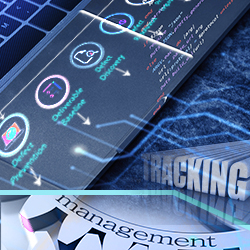
Defect Tracking and Management
- Experience with defect tracking and management tools such as JIRA, Bugzilla, HP ALM, etc., for logging, tracking, and resolving software defects.
- Prioritise defects based on severity and impact on software functionality.
- Understanding of defect lifecycle and best practices for prioritising and resolving defects efficiently.

Test Automation
- Knowledge of test automation frameworks such as Selenium, Appium, JUnit, TestNG, Cucumber, etc., for automating test cases.
- Ability to develop and maintain automated test scripts to improve testing efficiency and coverage.
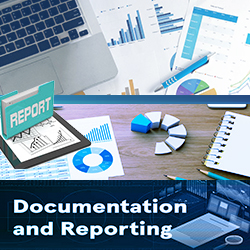
Documentation and Reporting
- Generate detailed test reports summarising test execution, results, defect status and other key metrics.
- Document testing artefacts including test plans, test cases, and test results.
- Communicate testing findings and recommendations to stakeholders.
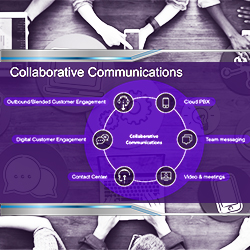
Communication and Collaboration
- Strong communication skills to collaborate effectively with cross-functional teams including developers, product managers, business analysts, etc.
- Ability to communicate testing progress, findings, and recommendations to stakeholders in a clear and concise manner.
Our team are well versed on many defect management tools such as

JIRA
- A popular defect tracking tool that allows teams to plan, track, and manage software development projects.
- Features include issue tracking, customisable workflows, and integration with other development tools.
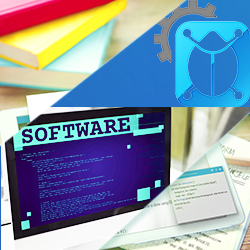
Bugzilla
- An open-source defect tracking system that allows users to report, track, and manage software bugs.
- Features include bug tracking, advanced search capabilities, and email notifications.
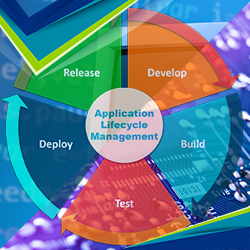
HP ALM (Application Lifecycle Management)
- A comprehensive application lifecycle management tool that includes defect management, requirements management, test management, and release management functionalities.
- Features include defect tracking, traceability, reporting, and integration with other ALM tools.

Trello
- A flexible project management tool that can be adapted for defect tracking.
- Features include customisable boards, cards, and lists for managing defects and tasks.

Redline
- An open-source project management and issue tracking tool that includes defect management capabilities.
- Features include issue tracking, time tracking, and integration with version control systems.
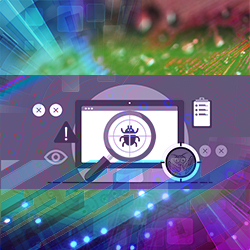
MantisBT
- An open-source defect tracking system that allows users to report, track, and manage software bugs.
- Features include bug tracking, custom fields, and email notifications.

GitHub Issues
- A lightweight issue tracking system integrated with GitHub repositories.
- Features include issue tracking, labels, milestones, and integration with pull requests.

Azure DevOps (formerly Visual Studio Team Services)
- A suite of development tools that includes defect management, version control, build automation, and release management functionalities.
- Features include defect tracking, customisable workflows and integration with other Microsoft tools.
We adapt proper End-to-End defect management process

Defect Identification:
- Defects are identified through various testing activities such as functional testing, integration testing, system testing, regression testing, etc.

Defect Logging
- Defects are logged into the defect management tool with detailed information including description, steps to reproduce, severity, priority, etc.

Defect Prioritisation
- Defects are prioritised based on severity, impact on the software and business priorities.

Defect Assignment
- Defects are assigned to appropriate team members responsible for resolving them (developers, testers, etc.).

Defect Resolution
- Team members work on resolving the defects by identifying the root cause, fixing the code and retesting the fixes.

Defect Verification
- Once the defects are resolved, they are retested to ensure that the fixes have been effective and the defects are truly resolved.

Defect Closure
- Defects are closed in the defect management tool once they are verified as resolved.

Defect Reporting and Analysis
- Defect reports are generated to analyse defect trends, identify areas for improvement, and track defect metrics over time.
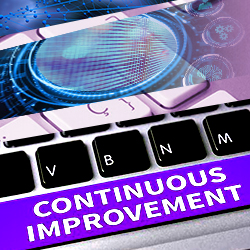
Continuous Improvement
- The defect management process is continuously reviewed and improved based on the analysis of defect data and feedback from stakeholders.
Best Testing & QA Practices
Our testing services adhere to industry best practices to ensure the highest standards of quality and reliability.

End-to-End Coverage
- Comprehensive testing coverage spanning user functionality, system functionality and system integration, ensuring the reliability and performance of your software systems.
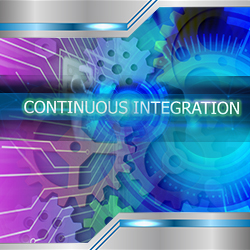
Continuous Integration
- Integration of regression testing into the continuous integration pipeline to detect and address regressions early in the development cycle.
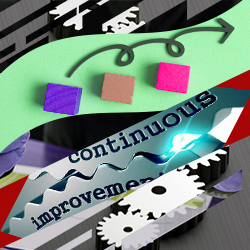
Continuous Improvement
- Continuous improvement of testing processes and methodologies based on feedback, lessons learned and industry best practices to drive efficiency and quality.

Test Automation
- Utilisation of test automation frameworks to automate repetitive regression test cases, ensuring faster and more reliable testing.
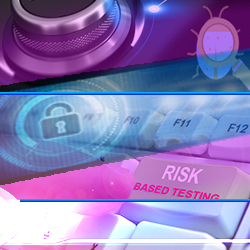
Risk-Based Testing
- Prioritisation of regression test cases based on the impact and likelihood of regression, optimising test coverage within time constraints.
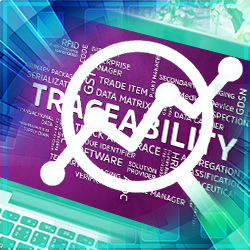
Traceability
- Establishing traceability between requirements, test cases and defects to ensure comprehensive test coverage and effective defect management.
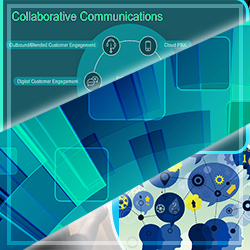
Collaboration and Communication
- Effective collaboration and communication with stakeholders, development teams and other project stakeholders to ensure alignment of testing objectives with business goals and project requirements.
Excellent Value for Money
We are committed to delivering excellent value for money by providing high-quality testing services tailored to your organisation's needs at competitive rates. Our transparent pricing model and flexible engagement options ensure that you receive maximum value from your investment in testing services.
Why Choose Us?
- Experienced team of certified testers
- Proven track record of delivering high-quality results.
- Tailored solutions to meet your specific requirements.
- Advanced tools and methodologies for efficient testing
- Commitment to customer satisfaction and continuous improvement
Contact Us Today
Ensure the stability and quality of your software with our Testing Services. Contact us today to discuss your testing requirements and discover how we can help you achieve software excellence.
Please Note: All trademarks, logos and patents are owned by the respective companies or organisation.
